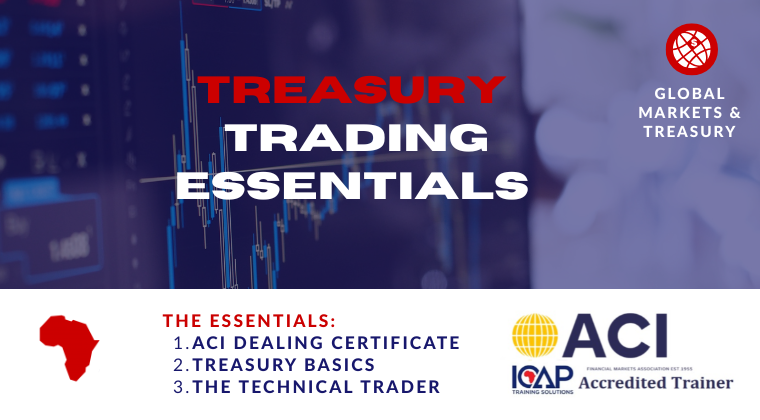-
Financial Markets Environment
Candidates will understand how the foreign exchange and money markets operate within the constraints set by the international and domestic policies of governments, and how they are generally implemented by central banks. They will be able to understand and explain the role of fundamental forecasting, their principles and methodologies.
-
Foreign Exchange
The objective of this area is to understand the historical evolution and central functions of the foreign exchange market and its related financial instruments and to acquire a broad range of practical skills such as: how to apply FX swaps in exploiting interest arbitrage opportunities and manage spot and forward FX positions, how to apply forward-forward FX swaps in managing interest rate risk and how to value forward FX positions. In addition, candidates are taught to exploit foreign exchange related instruments and understand their interrelationships. They will learn the relevant pricing mechanisms and display a good working knowledge and understanding of the rationale for NDFs.
-
Rates (Money and Interest Rate Markets)
Candidates will understand and be able to describe the central features and functions of the money and interest rate markets and their relationship with other financial markets. Candidates will learn about the cash instruments involved, their relative value and how they are traded. Candidates will understand how a fixed-income instrument works, how it is quoted, how to calculate its fair value and how to measure the interest rate risk. Candidates will learn to use yield-to-maturity, par yields and zero coupon yields in calculating the fair value of a fixed-income instrument, learn when and how to use each type of yield and how to calculate these yields. Candidates will demonstrate a good working knowledge of repos and their market, be able to describe the relationship of repos to the bond market, explain the related cash flows and understand the roles played by various market participants.
-
FICC (Fixed Income, Currency and Commodities) Derivatives
Candidates will understand the principles underlying basic option pricing theories, be able to explain the applications of options and describe option trading strategies. They will learn the pricing and application of money market futures and forward rate agreements, as well as money market swaps in hedging, risk-taking and arbitrage, and their interrelationships, and be able to use these instruments as a source of trading information.
-
Financial Markets Application
The objective of this area is to understand the risk governance arrangements and the risk management organisational structure of banks as well as their main functions. Candidates will be able to describe the role of risk capital and the structure of international capital adequacy requirements. Their understanding will extend to the principal methods of risk measurement, including the concept of Value-at-Risk (VaR).





